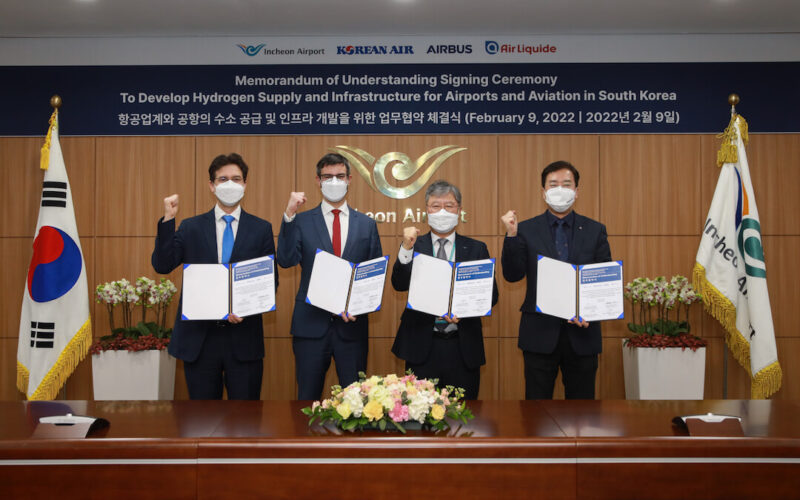Airbus has signed a Memorandum of Understanding (MOU) with Korean Air, Air Liquide Korea, and Incheon International Airport (ICN) to explore and develop the use of hydrogen in the decarbonization of the aviation sector in South Korea.
The collaboration will also study the development of a Korean domestic airport infrastructure to support the deployment of hydrogen-powered commercial aircrafts.
The South Korean government has implemented a goal of achieving carbon neutrality by 2050 and this partnership reflects a shared ambition with Airbus to drive the emergence of an innovative aviation sector.
The partnership will also focus on carrying out studies aimed at defining and developing the required liquid infrastructure at ICN to prepare the arrival of the first hydrogen-powered aircraft.
Airbus, Korean Air, Air Liquide Korea and ICN will each leverage their expertise to help define the potential opportunities that hydrogen offers, and support the decarbonization of the aviation industry.
Air Liquide will bring its extensive expertise in mastering the entire hydrogen value chain (production, liquefaction, storage and distribution ), in particular liquid hydrogen supply, while Korean Air will provide expertise on ground aircraft operations and aviation management and operations.
Airbus will provide characteristics of hydrogen-powered aircraft ground operations, as well as aircraft characteristics and fleet energy use.
Finally, Incheon International Airport Corporation will provide an airport development plan outlook, along with air traffic characteristics and distribution among terminals.
“In the coming years, the Korean aerospace ecosystem will have to adapt to new fuels and new distribution channels. Airbus and its partners need to be coordinated to ensure we will be ready,” Anand Stanley, Airbus President Asia-Pacific said in a statement.
“Together we will prepare a roadmap to first develop hydrogen usages at and around Incheon Airport and then build scenarios to support the deployment of hydrogen ecosystems connected to other Korean airports.”

